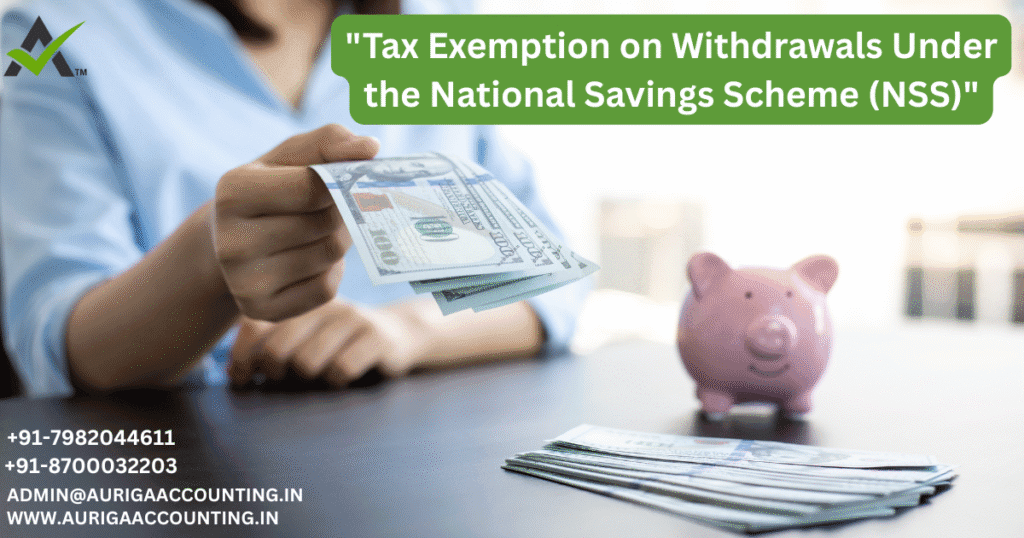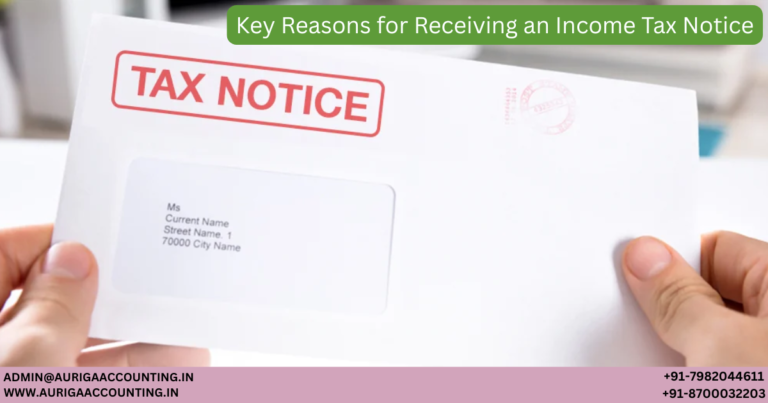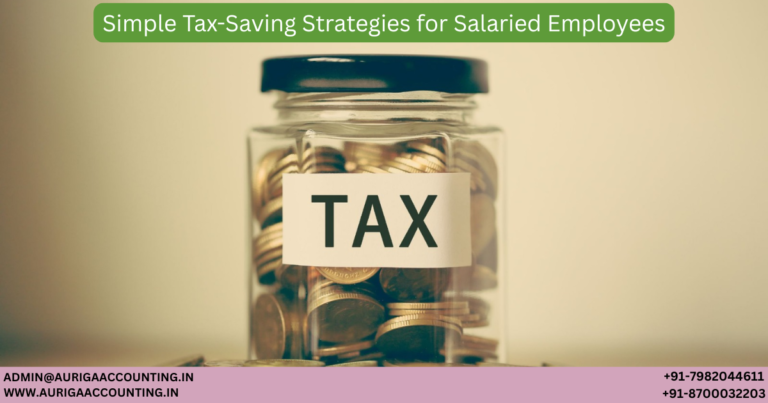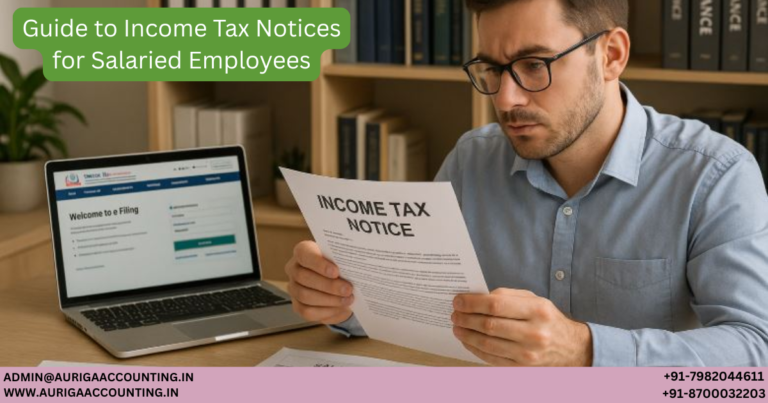
"Tax Exemption on Withdrawals Under the National Savings Scheme (NSS)"
Introduction
ToggleThe National Savings Scheme (NSS) is a government-backed savings initiative aimed at promoting long-term financial planning among citizens. Known for offering secure investments with fixed returns, it remains a preferred choice, especially among retirees. In the Union Budget 2025, Finance Minister Nirmala Sitharaman introduced a key update: withdrawals from NSS accounts made by senior citizens on or after August 29, 2024, will now be exempt from income tax. Previously, such withdrawals were treated as taxable income, often leading to a higher tax burden. This new exemption brings much-needed relief to senior citizens, enabling them to access their savings without incurring additional tax liabilities. This article covers the key highlights and implications of this tax exemption.
What is the National Savings Scheme (NSS)?
The National Savings Scheme (NSS) is a government-backed savings initiative aimed at promoting disciplined financial planning and long-term security. It offers a variety of investment instruments such as the Public Provident Fund (PPF), National Savings Certificate (NSC), Kisan Vikas Patra (KVP), and the Senior Citizens Savings Scheme (SCSS). These schemes are known for their attractive interest rates, low risk, and tax benefits under Section 80C of the Income Tax Act. Administered through authorized financial institutions, NSS provides a secure and dependable avenue for wealth accumulation and financial stability
Key Benefits of the National Savings Scheme (NSS)
Guaranteed Returns: All NSS schemes are backed by the government, ensuring safety of capital and stable returns.
Tax Advantages: Investments in schemes like PPF, NSC, and SCSS qualify for deductions under Section 80C, helping reduce taxable income.
Diverse Investment Options: With instruments catering to different financial goals, NSS offers flexibility through PPF, KVP, SCSS, and others.
Attractive Interest Rates: Returns are generally higher than traditional savings accounts or bank fixed deposits.
Risk-Free Investing: As these schemes are government-sponsored, they come with minimal credit risk.
Encourages Long-Term Saving: Products like PPF (15 years) and NSC (5 years) support long-term financial discipline.
Promotes Financial Security: Regular savings through NSS build a strong financial safety net for the future
NSS Benefits for Senior Citizens
The Senior Citizens Savings Scheme (SCSS) under NSS is especially designed to offer financial security after retirement. It provides higher interest rates than standard savings products and pays interest quarterly, offering regular income. Additionally, options like PPF and NSC also help senior citizens accumulate tax-saving, long-term wealth
Previous Taxation on NSS Withdrawals
Withdrawals from NSS accounts were previously taxable under the head “Income from Other Sources”, unlike instruments such as PPF or EPF which follow the Exempt-Exempt-Exempt (EEE) model. Both principal and interest could be taxed unless specific exemptions applied. Moreover, TDS (Tax Deducted at Source) was applicable if withdrawals exceeded certain thresholds, making it important for investors to plan withdrawals carefully
Budget 2025 Update: Tax Exemption on NSS Withdrawals
In Union Budget 2025, the government announced a major relief for senior citizens. Withdrawals from NSS accounts made on or after August 29, 2024, will now be exempt from income tax. This exemption applies to accounts where interest has ceased to accrue, providing much-needed relief to senior and very senior citizens with older NSS accounts.
Additionally, similar tax treatment has been proposed for NPS Vatsalya accounts, aligning them with regular NPS accounts under existing exemption limits
How Is This Tax Exemption Beneficial?
Tax Relief for Senior Citizens: Seniors can now withdraw funds from their NSS accounts without incurring extra tax liabilities.
Better Value on Savings: For accounts that no longer earn interest, this exemption ensures the principal isn’t reduced by taxes.
Improved Financial Security: With tax parity extended to NPS Vatsalya, retirees benefit from uniformity and fairness in retirement savings.
Supports Independence: By reducing the tax burden, the exemption empowers elderly individuals to manage their finances more independently
Additional Tax Reliefs for Senior Citizens in Budget 2025
Alongside the NSS withdrawal exemption, Budget 2025 has also doubled the tax deduction limit on interest income for senior citizens. The limit under Section 80TTB has been increased from ₹50,000 to ₹1 lakh. This means seniors can now claim a higher deduction on interest earned from:
Savings accounts
Fixed deposits
Other eligible interest-bearing instruments
This change is expected to provide additional financial cushion to retirees who rely heavily on interest income
About the Author
Priya
Priya is our expert content writer specializing in business registration, tax laws, trademark regulations, and company compliance. His well-researched articles provide clear, practical guidance that helps businesses confidently navigate complex legal and regulatory hurdles.












